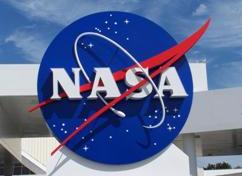European, Russian space partners urge NASA to lengthen ISS mission
 Washington - The European and Russian space agencies on Wednesday called on NASA to lengthen its commitment to the International Space Station (ISS) beyond 2015.
Washington - The European and Russian space agencies on Wednesday called on NASA to lengthen its commitment to the International Space Station (ISS) beyond 2015.
The comments came as part of a review that the Obama administration is conducting of the US manned spaceflight programme. An independent review committee is re- evaluating all aspects of human spaceflight, including the retirement of the space shuttle, the creation of the Orion spacecraft to replace the shuttle and plans to return to the moon.
"For human exploration, Europe is dependant on other partners, we can't take steps separate from you," said European Space Agency Director-General Jean-Jacques Dordain. Speaking to the review committee's first public meeting via conference call from Paris, he urged its members to keep the space station as a critical part of the space exploration programme until at least 2020.
He also said future efforts should try to seek returns from science earlier, criticizing the ISS project for spending years on building before now turning its attention to practical uses for the station.
Anatoly Perminov, head of the Russian space agency, Roscosmos, also stressed the need for the ISS to be part of the future of spaceflight, even as the United States aims to return to the moon by 2020.
He also called on NASA to speed up the development of the Orion spacecraft, which will replace the space shuttle. But the shuttle is due to be retired at the end of 2010 and the new craft will not be ready before 2015, leaving all responsibility for shuttling astronauts and supplies to the ISS to Russia.
US Senator Bill Nelson told the committee he was not comfortable with relying on the Russians without any other options to reach the ISS.
"My hope is our relations with the Russians are going to get better, but who know what geopolitics will be for the next ten years," he said.
Nelson, who represents Florida - which has a large space industry presence, was particularly critical of budget projects that show ISS funding ending in 2015, stressing that it has taken so long to build that its funding and the project should be extended.
He also expressed concern that not enough money was being budgeted for the Orion programme, leading to fears it cannot meet its goal of being ready for launch in 2015.
Much of the focus of the committee was on the gap between the two crafts, along with the costs and timeframe of developing the Orion space craft and the Ares rockets that will carry it into orbit.
Results of the review are expected by August.(dpa)